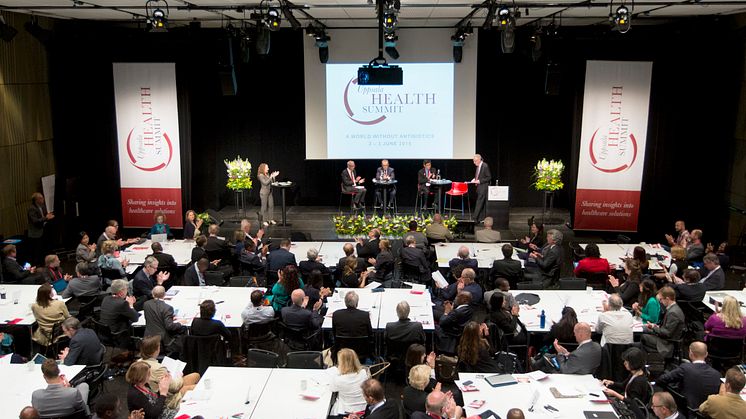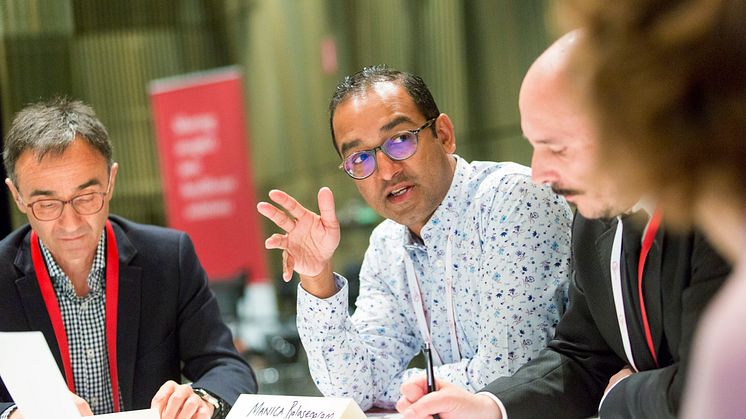Press release -
Conference report points the way in fight against antibiotic resistance
The aim of Uppsala Health Summit, this summer’s international summit about antibiotic resistance, was to make real progress in combatting this threat to public health. The conclusions have now been presented in a report which provides policy makers and medical professionals with a number of concrete recommendations.
‘We believe that we were able to ground the discussion in concrete issues, and in our report we chose to present measures which various actors can implement or develop further,’ says Thomas Tängdén, chairman of the programme committee.
Antibiotic resistance is a serious threat to public health. Dealing with it requires co-operation between many different actors on a global level. In June 2015, around 200 experts and decision-makers from all over the world met at Uppsala Health Summit to discuss how to face the challenge together. The week before the meeting, the WHO member states had adopted a global action plan which was used as the starting point for the discussions.
The report and its conclusions summarise the most important issues to deal with and give practical expression to a number of concrete proposals for action. It also includes summaries of the in-depth discussions which led to the proposals.
The overall conclusions of the report:
• Governments and international organisations must increase their involvement and display strong leadership in order to make clear what the threats are and present possible solutions.
• Many target groups still lack clear insight into the threats we face. Information and education should therefore be given top priority.
• Too many of the involved actors depend on selling antibiotics for their incomes.
• Trade agreements and regulations for public procurement are examples of tools which governments and international organisations can start using immediately to encourage rational use of antibiotics.
• ‘Rational use’ also means access to diagnostics, efficient antibiotics and data on resistance, which poses a challenge, particularly in developing countries.
• Research efforts to develop new antibiotics need to be intensified.
• More analyses of present and future consequences of antibiotic resistance are needed, as well as the costs not only of implementing the proposed measures but also of inaction.
• Effective co-ordination and communication of the various projects underway in antibiotic resistance is important.
‘We hope that the report will provide inspiration and support for the continued efforts at various levels. Some of the proposals need financing, others need the will and courage to make decisions,’ Thomas Tängdén says.
Read the conclusions and recommendations from the conference in the Uppsala Health Summit Post-Conference report, and also the background information in the Uppsala Health Summit Pre-Conference report.
For further information:
Thomas Tängdén, chairman of the programme committee, tel: +46 70 837 03 23
Madeleine Neil, project leader Uppsala Health Summit, tel: +46 70 425 08 91
Related links
Topics
Uppsala Health Summit is an international arena for dialogue between selected decision-makers, experts and opinion builders, to develop concrete proposals to meet health challenges globally, by implementing knowledge, research results and innovation.
Uppsala Health Summit is a collaboration led by Uppsala University, including the Swedish University of Agricultural Science, Uppsala County council, the Medical Products Agency, the National Veterinary Institute, VINNOVA- the Swedish Governmental Agency for Innovation Systems, the City of Uppsala and the network Worldclass Uppsala.


